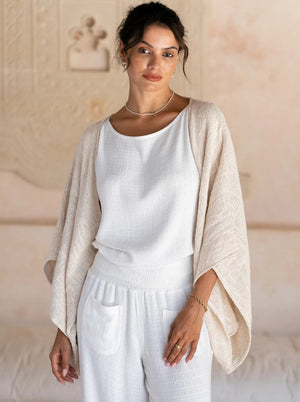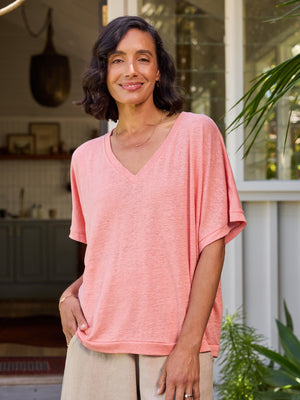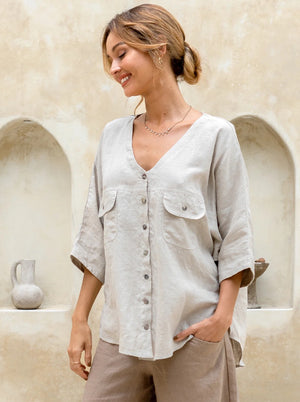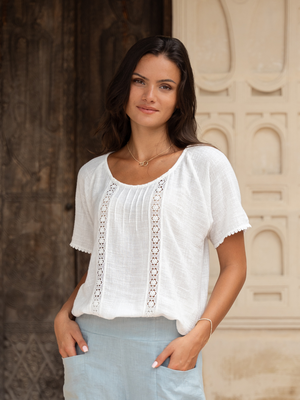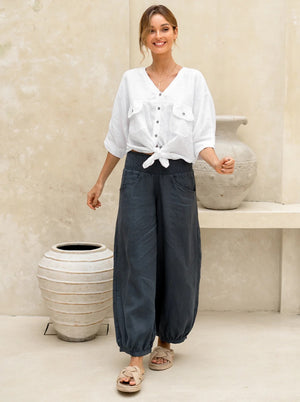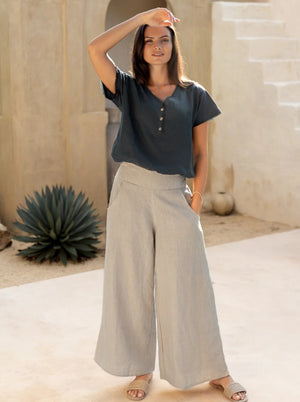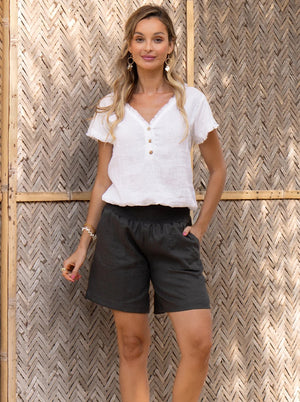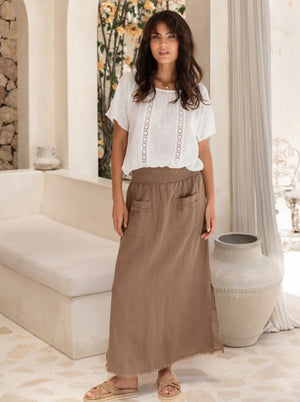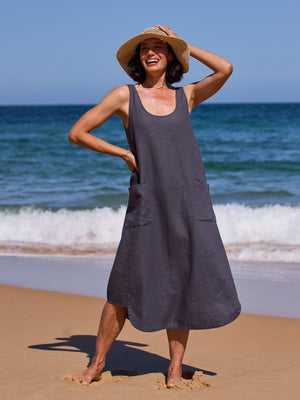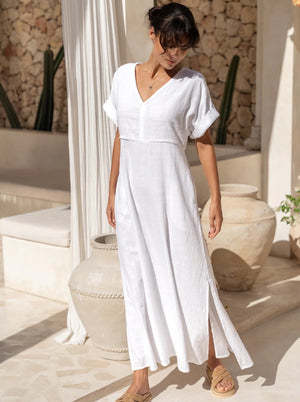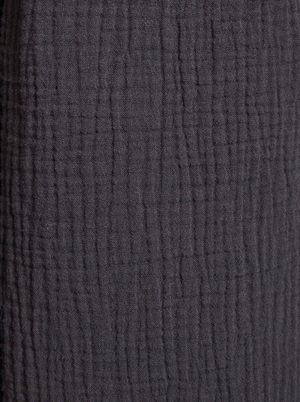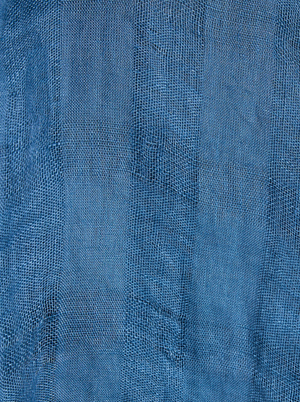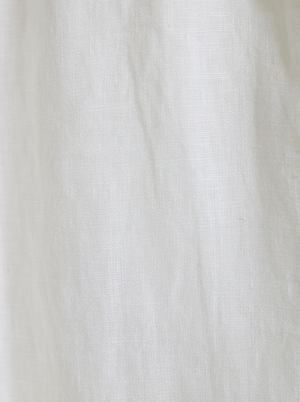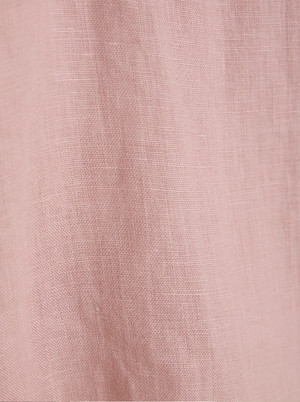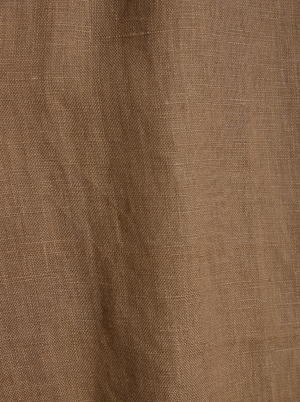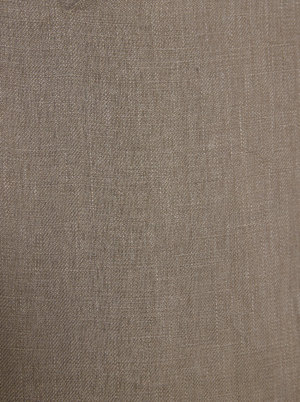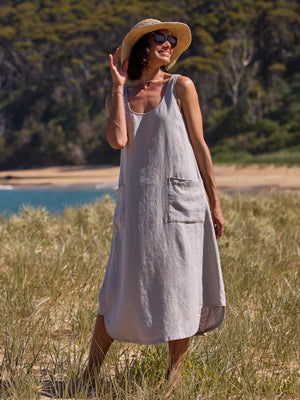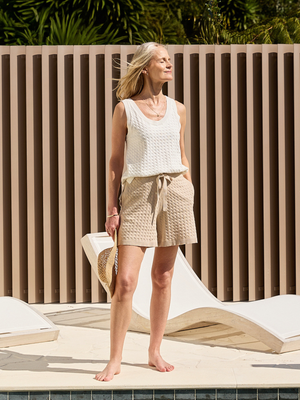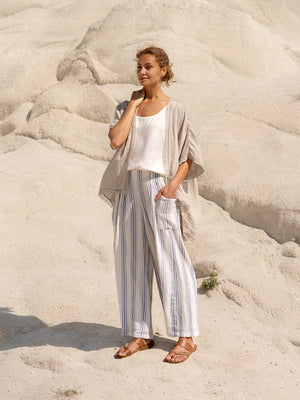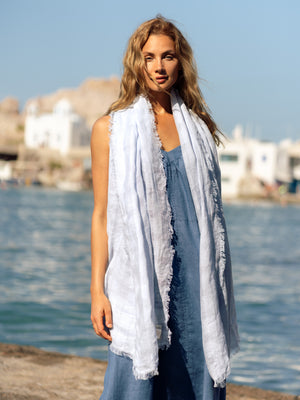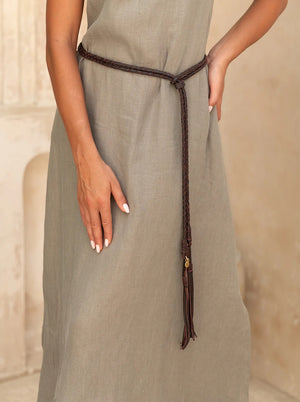For Planet and people
We’ve made it our mission to minimise our impact and enrich the planet that inspires our craft. We are dedicated to the production of natural, durable garments that withstand the test of time.
Our Fabrics
The raw truth about the fashion industry is the production of any fabric (no matter the fibre) has implications on the planet. Like many brands we put our trust in global fabric certifications to make responsible purchasing choices and hold ourselves accountable to producing with minimal impact.
Get to know our fibres:
We are committed to sourcing organic cotton, as it uses no pesticides or chemicals. As a fabric cotton is 100% biodegradable – even compostable if harmful substances aren’t used in the processing and design stage. 52% of cotton crops are fed with rainwater and require no irrigation. It is an extremely durable, breathable and hypoallergenic fibre.
Bast fibres come from the inner fibrous bark layer of a tree or plant and can easily be blended with other fibres. They have high moisture absorbency and are thermo-regulating – keeping us cool in summer and warm in winter. They are naturally anti-bacterial and odour resistant.
Ramie fibres come from nettle plants. It is native to Eastern Asia, thereforth China is the leading producer of this fibre. It has similar performance qualities to linen when it comes to absorbency and fabric density. It has a silky, lustrous finish with low elasticity. It is often combined with other fibres such as cotton or wool.
Linen is a highly resilient fabric. It is strong, able to withstand high temperatures and improves with age. Made from flax, it is naturally biodegradable, (even compostable depending on the processing). It has a smaller environmental footprint compared to other popular fibres as it has the ability to sequester carbon in its growing process. Flax is predominantly grown in Europe. It is important to note that it doesn’t become ‘linen’ until it is made into fabric. Therefore European Flax is not automatically European linen if woven in another country.
Hemp is considered an environmental super fibre. It is one of the strongest and most durable of all natural threads. Like flax it has the ability to sequester carbon in the growing process. It cleans the soil as it grows and produces high yields per acre. It is easy to comprehend why we love to use Hemp where we can.
Broadly speaking these are fibres made from the wood pulp of trees like pine, eucalyptus or beech. These fabrics include viscose, modal, lyocell or bamboo. We know that man made celluloses are tricky fibres. The reality is, the process of converting the wood pulp into fibres is chemical intensive and when humans are exposed to these chemicals it can have serious health consequences. Not to mention if the water is untreated and disposed of into local waterways it can be harmful to local communities and the environment.
Our supplier of man-made fabrics implements safety for everyone involved, using FSC certified inputs (traceability down to forest level) to protect people and the planet. Where we do use man-made celluloses (Viscose, Tencel, Rayon, Modal) we use Lenzing certified. If we choose to use it, it is often because we are needing a softness to the fabric. We add it into the fibre blend at the start, saving the fabric or garment from needing to be washed down the track to achieve softness.
We consciously limit our use of these materials and commit to advancing our practices with development of new technologies to truly realise our goal to become a fully circular label.
WHERE WE'RE AT WITH OUR JOURNEY
We’ve made it our mission to minimise our impact and enrich the planet that inspires our craft. We are dedicated to the production of natural, durable garments that withstand the test of time.
Fabric Certification
Fabric certifications are the most accessible and practical way for us (as a small business) to have confidence in the origin and ethical production of our fabrics. We check all fabric certifications provided to ensure to the best of our ability that they are authentic. We are committed to continually improving our certification process with the growth of the label. The most prominent certifications we look to are GOTS and FSC certified fabrics.
FABRIC COMPOSITIONS
We choose fabrics composed from mono-materials – this refers to using 100% of one fibre type, as seen in a a pure linen composition. Why? Because we know that these are easier to recycle with current technology.
When we use a fabric made up of multiple materials we select materials composed of similar fibres, i.e. celluloses cotton and linen together rather than a cellulose and synthetic.
SUBSTANCE TESTING
We acknowledge that using certified or reputable materials isn’t the end of the story. We monitor chemical use with Oeko-tex – 100 certification from the washing process, to the finishes, dyes and inks used.
This certification checks for up to 350 harmful substances and certifies that every component of the garment from the fabric to the thread has been rigorously tested.
OUR CIRCULAR ECONOMY
Through conscionable partnerships, transparent material sourcing, manufacturing visibility and timeless designs, we are working toward our vision of becoming a fully circular label.
Innately, mindfully, intentionally, constantly.
We are walking our own path, moving away from the take-make-waste mentality of the fashion industry. It’s not revolutionary, rather necessary. A return to the behaviours of nature, where nothing goes to waste.
We are challenging ourselves as creators to exist gently and kindly – for the people of tomorrow. Our circular thinking applies not only to our garments but our business structure. It is built in with these three leading objectives:
- To eliminate waste and pollution
- To keep products and materials in use
- Regenerate natural systems
We eliminate waste by making sure pattern pieces are cut in a configuration that eliminates waste, and repurpose offcuts to create small-scale products.
We keep products and materials in use by ensuring we use durable fibres and the highest quality craftsmanship. We partner with Airrobe to encourage you, our Nomad’s, to resell, rent or recycle your garments once you’re done loving them.
We are committed to regenerating natural systems. That’s why we plant a tree for every purchase in collaboration with our partners. This aligns with our sustainable development goals.
OUR SUPPLY CHAIN
TIER 0
Nomad The Label Head office
Creative, operations, logistics, warehouse, retail
Tier 0 is based in the New South Wales, central coast region.
TIER 1
Manufacturing Suppliers
Suppliers, manufacturers, and factories
This tier refers to the product manufacturers who cut, sew and assemble the products. ‘Made in’ tags refer to this tier.
TIER 2
Raw Materials
This tier refers to our knitting, weaving, dye houses, embroiders, printers, tanneries, trim and hardware suppliers.
TIER 3
Raw Materials Processing
This tier refers to staple fibre producers, ginners, spinners and abattoirs.
TIER 4
Raw Material Suppliers
Tier four suppliers are our raw material producers inclusive of farms and forests.






